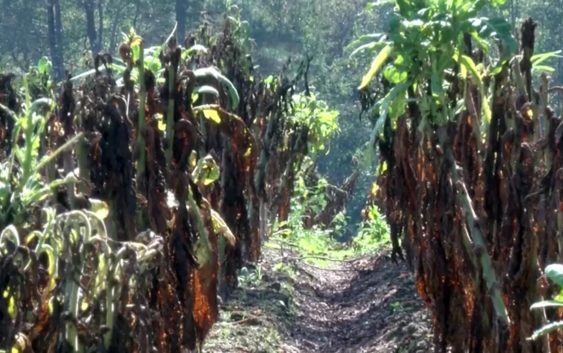- Severe weather leads to fallen trees, car crashes and flooding around the Triangle
- New video shows vehicles being swept away in historic, deadly flash floods in SA on June 12
- $40 million to go to underserved SC counties for Hurricane Helene recovery. Here's what you need to know.
- Family honors Air Force veteran Derwin Anderson Jr. after he died in June flash floods
- City of Wilmington addresses flooding on New Centre Drive
Troxler: Checks in mail for farmers hurt by Florence

Raleigh, N.C. — The first payments to farmers from a $240 million fund state lawmakers set up last fall to help with Hurricane Florence recovery were issued Wednesday, Agriculture Commissioner Steve Troxler said.
“This money is going to go directly into the hands of farmers,” Troxler said at a news conference. “It does not make farmers whole. The damage is so deep, and we think there’s about $1.2 billion in damage. You can do the math.”
So far, about 7,000 farmers across the state have applied for some of the relief money. The $15.2 million distributed Wednesday accounts for the first 1,000 of those, he said.
A second round of checks will be mailed Friday to another 1,000 farmers, he said, and checks will continue going out every Monday, Wednesday and Friday until the fund is exhausted.
“Agriculture is the economic backbone of our economy in rural North Carolina, and it was pummeled in 2018,” Troxler said. “The storm hit our largest agriculture counties.”
Karen Brown of Chilly Water Farm in Sparta said some of her neighbors in Alleghany County applied for relief after heavy rains washed out their crops and some farm roads.
“The state, they do all they can to help us. But with farming, it’s a lot of you help yourself – day in, day out, just help yourself,” said Brown, who was in Raleigh on Wednesday to attend the Southeast Farm Show at the State Fairgrounds.
Seventy of North Carolina’s 100 counties are considered disaster areas because of Florence and Tropical Storm Michael last fall, and Troxler said that growing number – initially, only 31 counties were in the disaster declaration – has made processing relief claims difficult.
The effort also was slowed by the five-week partial government shutdown because farmers needed a form from their local Farm Service Agency office to document their storm-related losses.
Troxler asked farmers for continued patience as claims are processed, noting that they are being handled randomly and not on a county-by-county basis. Applications missing information will require follow-up calls in order to be verified and approved, he said.
“We said we wanted to get checks out in January, and were getting some of these checks out this month,” he said.